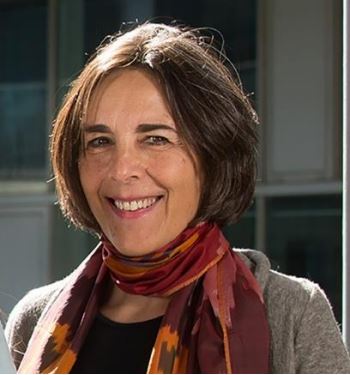INSTITUTE SEMINAR
How progenitor and neurogenic capacities are spatiotemporally allocated during brain morphogenesis: towards a 4D-perspective
Speaker
Cristina Pujades
Date and time
February 9, 15:30
Place
Instituto Cajal
Abstract
The generation of cell diversity in the central nervous system occurs during embryogenesis and requires a precise balance between cell proliferation, commitment to specific fates, and further neuronal differentiation. The cellular and molecular mechanisms regulating this balance in the embryonic brain are still poorly understood. I will discuss our latest results in how the neurogenic capacity in the embryonic hindbrain is spatiotemporally allocated, and how the fate and the growth of the hindbrain boundary cells are regulated. By generating a CRISPR-based knock-in zebrafish transgenic line to specifically label the hindbrain boundaries, we unveiled that boundary cells undergo a functional transition to become neurogenic during hindbrain segmentation concurrently as they maintain the progenitor cell pool. Boundary cells engaged in neurogenesis coinciding with the onset of Notch signaling, which triggered their asymmetrical cell division. Our findings reveal that distinct neurogenic phases take place during hindbrain growth and suggest that boundary cells contribute to refine the final number, identity, and proportion of neurons in the brain.
Affiliation and short bio

Cristina Pujades is Full Professor at the Universitat Pompeu Fabra (UPF). After her PhD in Biology from the Univ de Barcelona (1991), she spent few years as postdoc at the DFCI-Harvard Medical School (Boston) working in cell adhesion molecules. Then, she moved to Paris first as a postdoc at the Ecole Normale Supérieure (ENS), and then she got a permanent position at the Univ Pierre et Marie Curie. In 2002, she had the opportunity to join as PI the Department of Experimental and Health Sciences (DCEXS) at the UPF, where she served first as Academic Secretary and then as Vice-Chair of the DCEXS, as VR of Professorate and as VR of Talent Recruitment and Retaining Policy. She is a recipient of the ICREA Academia award. Her scientific goal is to understand how spatiotemporally coordinated cell progenitor specification and differentiation occur during morphogenesis to construct a functional brain. While incorporating time as a missing-yet-crucial factor, she wants to provide a global view of how cell fate decisions are taken in the brain and gain biological insight into: i) how tissue growth is intertwined with cell proliferation and differentiation; ii) how the heterogeneity of neural progenitors is generated; and iii) how individual progenitors behave during patterning and morphogenesis.
